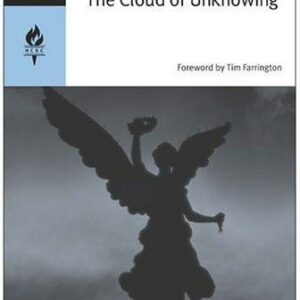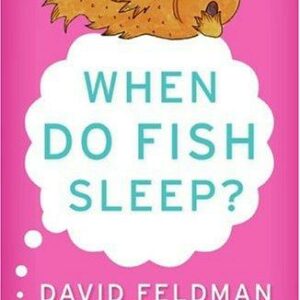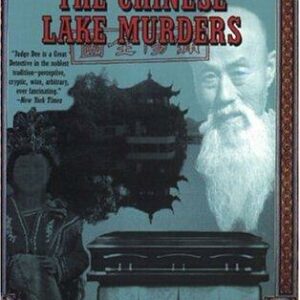The Women of Chateau Lafayette
$18.00
| Title | Range | Discount |
|---|---|---|
| Trade Discount | 5 + | 25% |
- Description
- Additional information
Description
The USA Today Bestseller!
Recommended by Oprah Magazine ∙ Cosmopolitan ∙ PopSugar ∙ SheReads ∙ Parade ∙ and more!
An epic saga from New York Times bestselling author Stephanie Dray based on the true story of an extraordinary castle in the heart of France and the remarkable women bound by its legacy.
Most castles are protected by men. This one by women.
A founding mother…
1774. Gently-bred noblewoman Adrienne Lafayette becomes her husband, the Marquis de Lafayette’s political partner in the fight for American independence. But when their idealism sparks revolution in France and the guillotine threatens everything she holds dear, Adrienne must renounce the complicated man she loves, or risk her life for a legacy that will inspire generations to come.
A daring visionary…
1914. Glittering New York socialite Beatrice Chanler is a force of nature, daunted by nothing—not her humble beginnings, her crumbling marriage, or the outbreak of war. But after witnessing the devastation in France firsthand, Beatrice takes on the challenge of a lifetime: convincing America to fight for what’s right.
A reluctant resistor…
1940. French school-teacher and aspiring artist Marthe Simone has an orphan’s self-reliance and wants nothing to do with war. But as the realities of Nazi occupation transform her life in the isolated castle where she came of age, she makes a discovery that calls into question who she is, and more importantly, who she is willing to become.
Intricately woven and powerfully told, The Women of Chateau Lafayette is a sweeping novel about duty and hope, love and courage, and the strength we take from those who came before us.“[R]iveting…We can learn from Adrienne, Beatrice, and Marthe’s stories, even as we’re swept away.” —Oprah Magazine
“It’s a story about survival and how three women somehow make it through tragedy to ensure a better world for future generations.”—Cosmopolitan
“This is a wildly impressive novel with characters who fly off the page. The Women of Chateau Lafayette unflinchingly describes the toll that war and the fight for democracy takes on us all. And perhaps more poignantly, it reminds us that we are forever connected to our past.”—The Jewish Journal
“What blew me away was not [the women’s] strength—I’ve read more than enough novels and seen enough of the world to know how strong women are—but how distinct they are. They aren’t just any three women; Stephanie Dray has breathed life into her protagonists…I loved sinking into this book, and anyone who enjoys historical fiction will as well.”—Manhattan Book Review
“Stephanie Dray’s latest is a masterpiece, braiding three stories into a single tale of courage, humanity, and women triumphing in the face of overwhelming odds. Three heroines with seemingly nothing in common—a French Revolution Founding Mother struggling to preserve her family, a World War I socialite turned passionate activist, and a World War II orphan pulled into the French Resistance—turn out to have everything in common as they struggle through the chaos of three separate wars to forge a united legacy. The Women of Chateau Lafayette is destined to soar!”
—Kate Quinn, New York Times bestselling author of The Alice Network
“Vividly told and compelling. The stories of these three splendid women intertwine beautifully into a heart-stopping tale.”
—Frances Liardet, New York Times bestselling author of We Must Be Brave
“If it’s the details that bring historical fiction alive, Stephanie Dray has not only painted the most vivid world imaginable, but she has quite nearly created a veritable time machine to the past. The Women of Chateau Lafayette shines with her incredibly meticulous research, and against that masterfully built backdrop, she has placed three extraordinary women, each fighting her own battle in a different war, whose lives are connected in ways that will make your heart soar. You’ll be mesmerized by this sprawling, epic, masterful tale of love, heartbreak, strength, and duty, all set across a century and a half of riveting French and American history. The fascinating Author’s Note at the end is the final dusting of sugar on this complex, unforgettable French treat.”
—Kristin Harmel, New York Times bestselling author of The Book of Lost Names
“Just dazzling! Three women, three wars, one French chateau and a whole lot of heroism: The Women of Chateau Lafayette is quite simply breathtaking in its scope and accomplishment. Prepare to be swept away to France and beyond by a master storyteller.”
—Natasha Lester, New York Times bestselling author of The Paris Secret
“Prepare to be swept away by utterly masterful storytelling. Stephanie Dray’s The Women of Chateau Lafayette abounds with wartime intrigue, superb historical detail, and unforgettable women of courage you won’t soon forget, nor should you. A captivating page-turner from first word to last.”
—Susan Meissner, author of The Nature of Fragile Things
“This is by far one of the grandest novels I’ve read in a long time. A masterpiece of historical fiction. Stephanie Dray has created an all-encompassing saga spanning three wars with three unforgettable women at its core. The immense scope of research, so seamlessly infused into Dray’s stunning prose, is mind-blowing. I simply can’t say enough good things about this brilliant novel.”
—Renee Rosen, bestselling author of The Social Graces
“A rich and immersive deep dive into three tumultuous eras in French history via the lives of three remarkable women. Despite the strictures of their times and the hardships they face, Stephanie Dray’s women of Chateau Lafayette– the aristocrat, the artist, the orphan– are testament to the power of the individual to take a stand and shape the course of history. Warning: you’ll want desperately to know how it all turns out while wanting just as desperately for none of their stories to end…. And you’ll catch yourself thinking about all three women long after the book has been closed.”
—Lauren Willig, New York Times bestselling author of Band of Sisters
“Impeccably researched and masterfully told… This ode to the strength of women throughout the ages is a tour de force!”
—Stephanie Thornton, USA Today bestselling author of And They Called It Camelot
“Stephanie Dray sparkles and astounds with this compelling and seamlessly woven multigenerational epic about the women who resisted, fought, and sacrificed to protect Lafayette’s legacy and our most cherished ideals and institutions. A monumental achievement and truly historical fiction at its finest!”
—Laura Kamoie, New York Times bestselling co-author of America’s First Daughter
“A masterful work of historical fiction, enthralling, immersive, and utterly impossible to put down. Stephanie Dray deftly weaves together the lives of three fascinating, courageous women, separated in time but united in their enduring connections to an extraordinary castle in the French countryside.”
—Jennifer Chiaverini, New York Times bestselling author of Resistance Women
“Captivating, moving, and utterly unforgettable, The Women of Chateau Lafayette is extraordinary in every aspect. Dray’s astounding depth of research and richly drawn characters combine to brilliant effect in this epically breathtaking tale that held me in its grips from the very first page. I didn’t just read the interwoven journeys of three remarkable women, I lived and fought and endured alongside them. An absolute must-read!”
—Kristina McMorris, New York Times bestselling author of Sold on a Monday
“This book establishes a subdued, steady tension that never releases its grip. Dray uses lavish historical detail in this extensively researched, sweeping novel.”—Library Journal (starred review)
“Expert storytelling…highly recommended, sure to appeal to fans of women’s fiction, WWII-era historical fiction, and the musical Hamilton.”—Booklist (starred review)
“Dray poignantly reminds us of the undervalued contributions of women throughout history.”—BookPage (starred review)
“This is a history-sweeping story encompassing the French Revolution and both world wars, woven around a mix of fictional and real-life characters….It’s a long, satisfying book, deeply researched by this wonderful historical novelist.”—AARPStephanie Dray is a New York Times, Wall Street Journal, & USA Today bestselling author of historical women’s fiction. Her award-winning work has been translated into eight languages and tops lists for the most anticipated reads of the year. She lives near the Maryland with her husband, cats, and history books.
One
MARTHE
Chavaniac-Lafayette
The Free Zone
October 1940
I’ve almost made it, I think, pedaling my bicycle faster when I see the castle’s crenelated tower at the summit. I’ve ridden past yellowing autumn farmland, past the preventorium’s dormitories for boys, and past the terra-cotta-roof-topped houses of the village. And despite blistered feet and scuffed saddle shoes, I’m feeling cocky.
As I near the castle proper, I’m no longer worried anyone is going to take what I’ve carried all this way, which is probably why I’m so surprised to see Sergeant Travert’s old black Citro‘n parked by the village fountain.
Malchance! What shit luck.
Sergeant Travert patrols our village every evening on his way home. For some reason the gendarme is early today, and having stalled out his jalopy, he’s got the hood up to repair it.
I try to ride past, but he notices and waves me over.
My heart sinks as Travert approaches, doffing his policeman’s cap, then resting his hand on his holstered pistol. “What have we here, mademoiselle?”
I pretend to be calm while he peers into my bicycle pannier baskets. “Just some supplies from Paulhaguet.”
That’s the nearest little town, where I bought dried sausage with ration coupons, but I traded on the black market to get sugar, paper for my classroom, and medicine for the doctors at the preventorium.
Black market barters for hard-to-find goods are illegal. I took the risk anyway for a good cause, but I had a selfish motive too. One the snooping constable uncovers with a disapproving arch of his bushy brow. “Cigarettes?”
According to our new leader, Marshal PŽtain, Frenchwomen who smoke-not to mention foreigners and unpatriotic schoolteachers-are to blame for France’s defeat.
Personally, I think it had more to do with Hitler.
Maybe it even had to do with military leaders like PŽtain who believed in fairy tales like the stupid Maginot Line to keep us safe. I can’t say something like that, though. I shouldn’t even think something like that about the Marshal-the man who saved France in the last war, and, as everyone says, the only man who can save us now.
But merde, what smug idiots got us into this war?
Hitler’s panzer divisions rolled past French defenses five months ago. The Allies fled at Dunkirk, leaving forty thousand French soldiers to cover their retreat and hold the Germans back. All for nothing. Eighteen days later, we surrendered, to the shock of the world. Like almost everyone else, I was relieved; I thought the fighting would stop and that Henri would come home. But now a swastika is flying over the Eiffel Tower, and France-or what’s left of her below the line of demarcation-is neutral while Britain fights on, alone.
Almost two million French soldiers are prisoners of war-including Henri. My Henri. Given all that, smoking is the only thing keeping me sane, so the lie comes easily. “The cigarettes are for the baron.”
The gendarme looks over his shoulder at the castle and says, “I took the Baron de LaGrange more for a man who prefers a pipe.”
The baron is now the acting president of the preventorium. The baroness trained as a nurse in the last war and has a knack for organization, but unfortunately, women aren’t supposed to run anything now, so her husband got the job. And as the founder of an elite pilots’ training school and a senator with connections in the new Vichy government, the baron is too powerful to question about cigarettes.
Travert knows it and knits those bushy brows.
For a moment, I think he’ll shrug and walk away. Instead, he sweeps autumn leaves off the low stone wall and leans against it. “It gets lonely around here these days, mademoiselle, does it not? Tell me, what does a schoolteacher with such pretty blue eyes do when class is not in session?”
“I lie about eating chocolates.” What does he think? There are four hundred sick children to feed at the preventorium-which means growing vegetables, milking cows in the dairy, and helping to raise and butcher pigs.
Every day since the war started has been a struggle, but I don’t think he cares about that. No, I think the gendarme is after something else when he reaches for my wrist and traces it with his thumb. “Your tone is sharp, mademoiselle. You ought to show more respect for an officer of the law.”
I probably should, considering he could arrest me or seize my ill-gotten goods, but I’m too angry that he’s touching me. I don’t think he’d dare if I were wearing my engagement ring. It’s tucked under my scarf, hanging from my neck on a chain because it kept slipping off a finger that has become, like the rest of me, thinner than before the war. Thinking about it makes me combative. “You really want to know what I do when I’m lonely? I kiss the picture of my fiancŽ, praying for his safe return from his prisoner of war camp.”
That’s enough to shame the gendarme, who shrugs like he was just testing me. “I wish all Frenchwomen were so devoted.”
Sure, I was so devoted that I made Henri wait until the very last minute, once it was too late to arrange the wedding he wanted. Feeling miserably guilty, I look away, and the gendarme notices. “You’re certain you have nothing to hide, mademoiselle? Your cheeks are pink!”
“The air is chilly,” I say, tugging my old red beret down over my ears. “And I exhausted myself standing in line at the shops in Paulhaguet all morning, and on the ride back.”
This is a stupid lie, because Travert knows I’ve been hiking, camping, and hunting in these rugged woods since I was in pigtails. A bicycle ride isn’t enough to wind me. Then again, everything is harder when you’re hungry.
Travert puffs out his barrel chest. “Exertion is good for you. The Marshal says to stay fit. Get lots of exercise and fresh air.”
I could outrun Travert in a footrace any day, but I’d rather not have to, so I settle on sarcasm. “We must fight the rot of la dŽcadence and restore the honor of France, no?”
He laughs, and I laugh too, but neither of us is amused.
According to the Marshal, the honor of France is so fragile that it was lost to art, accents, women, and wine. Meanwhile, on the BBC, the rogue General de Gaulle says French honor can be restored only by suicidal resistance against the Nazis.
I don’t believe either of them.
These days it’s hard to believe in anything but self-interest. And it’s self-interest that saves me. Tempted by the dried sausage peeking out of its paper, Travert breaks an end off for his lunch and leaves me the rest. “Au revoir, mademoiselle.”
He knows I’m guilty of black market bargaining or he wouldn’t have taken a piece of my sausage, so I don’t argue. “Adieu!”
Once inside the castle gates, I dodge mud puddles in the drive, where the ambulance has been stranded for a week without fuel. The children are at recess wearing scout uniforms; it seems everyone wears a uniform of some kind these days to restore our morals.
A fair-haired eight-year-old who came to us from Lille afflicted with rickets now hops off the swing set, her corkscrew curls bouncing as she runs through fallen leaves to greet me, calling, “Ma”tresse! Ma”tresse!” She’s followed by an asthmatic fifteen-year-old from Toulouse, who is almost cured and ready to go back to her family.
Both girls are curious about my packages, so I scold, “No peeking. It’s a surprise for the kitchen.”
The littlest’s eyes round. “Did you find cat tongue cookies?”
Our Lafayette kids all love the buttery crisps sent to us by Madame Beatrice from New York; they don’t know our supplies are dwindling because of the blockade. For the children, the war seems far away, and we want to keep it that way, so I say, “We have to save the cookies for Christmas, but you might get a little sausage in your lentil soup. Now, go play before nap time.”
When the girls run off, I stow the bicycle, tuck the cigarettes into my back pocket, and take the parcels to the old feudal guardroom kitchen, which the baroness has all but transformed into a modern canning factory. She’s determined to pickle and preserve every last edible thing before winter sets in, assisted by the school’s doyenne, Madame LeVerrier, and the foundation’s secretary-general, Madame Simon-both of whom are as much a part of the castle as the wooden shutters on the casement windows.
Working beneath old copper pots that hang from the vaulted ceiling, the three women greet me as a heroine for finding even a little sugar. But I don’t stay to bask in their praise, because the last thing I want is to be pressed into making wild strawberry preserves.
I’m in such a hurry to escape canning duty that I nearly plow over poor Dr. Anglade, who is coming down the castle’s winding main staircase with a tray of syringes. When he sees what I’ve got for him, though, his stern expression melts. “Sulfonamide,” he whispers reverently. “Dr. Boulagnon said he didn’t expect a shipment in Paulhaguet for a week. Where did you get it?”
“It’s better you don’t ask too many questions.” Or at least, that’s what Madame Simon told me when emptying the preventorium’s discretionary cashbox to send me on this mission. She also said, When there’s a war on, it’s best not to tell anyone anything they don’t need to know.
Now Dr. Anglade eyes me warily through his round, wire-rimmed spectacles. “Can you get more?”
I shake my head. It’s somebody else’s turn to risk trading on the black market. Doing it once was impulsive. Twice would be stupid. I’ve always believed that you shouldn’t put your neck out for others unless you want it chopped. So, having done my good deed, I trudge to my classroom, a plain chamber featuring rows of wooden desks for little girls and one for me. Over the door hangs a new portrait of the Marshal, white-haired, white-whiskered, and in uniform. Every teacher in France is supposed to enlist children to send drawings and letters and stories to the new head of state as a so-called Christmas Surprise for the Marshal.
I resent this. Our sick kids are with us at the preventorium only between six months and two years, until they’re cured. My job is to see they don’t fall so far behind in schooling that they can’t pass the examinations for their certificate of primary studies. I teach them reading, writing, and basic mathematics. I don’t have time to teach them about the Marshal or his so-called new National Revolution. Or maybe I just don’t want to, because my feelings about both are mixed. Not that I have the right to judge. I’m no war hero, and everyone says the Marshal is doing the best he can. After all, with half the country occupied by the Nazis, we’re all held at gunpoint, and it’s impossible to know which of the new laws the Marshal is forcing down our throats and which Hitler is forcing down his.
Brooding about this, I make fifteen copies of tomorrow’s spelling test, spreading the master copy out onto the hectograph tablet until the ink is ready. Then I carefully press paper to the gel and smooth it until it’s a perfect mimic. I’m always particular about making worksheets, because it’s about as close to a creative art as I get now that we’re short on pens, paper, charcoal, and paint. And while the copies dry, I look over the Christmas Surprise assignments.
One of my students has drawn the Marshal as a lion wearing a French military cap, because I told her he was called the Lion of Verdun-and I laugh because she’s given her lion a mustache. I’m less amused by the sycophantic essays written by the older girls about how the Marshal has given France the gift of his person. Maybe I’d be feeling more charitable if Henri weren’t in a prison camp under the terms of surrender the Marshal negotiated.
I’m still hungry after a few slices of dried sausage at my desk. Here in the countryside we still have eggs and fruit and even butter-but it never seems like enough. Cigarettes take the edge off, so I’ll have to find a secret spot in the castle to smoke where I can’t be caught by our household management teacher, Faustine Xavier, a prissy little tattletale, who always wears her starched collars too high and her hair pinned too tight. Fortunately, I know all the secret spots. The old hidden feudal passages are too cold this time of year and I’m too claustrophobic to spend much time there anyway, but the attic has sunny windows, which makes it a favorite haunt of the castle cats-and I like it too.
It’s where I used to sculpt and sketch, but no one goes up there anymore, so when I push the ancient door open wider on its rusty hinges, I’m startled to see a silhouette in the window seat. And the silhouette is equally startled by me. “Sacrebleu!” A dark-haired beauty emerges in statuesque splendor, silk blouse, bright red lipstick, and a cigarette holder between her fingers. “I thought you were my maman come to catch me out.”
“Your maman?” I ask, confused.
The elegant stranger stares. “. . . Marthe?”
I stare back without recognition.
She smirks. “You don’t remember me, do you?”
I feel like I should. No artist should forget cheekbones like hers, but lots of people pass in and out of this castle every day, and have every day of my life. Still, I find something familiar about her long dark eyelashes . . .
“About ten years ago,” she prompts. “Maman brought me with her for some holiday function. You were one of the only girls at the orphanage, so I knitted you a red beret . . . and you took me sledding.”
That jogs my memory. I was thirteen, and she was twelve, sporty and boyish. She’s all girl now, which is why I didn’t recognize her as the baron’s daughter. “Anna de LaGrange?”
Flashing an art deco wedding ring set on her left hand that nearly blinds me with the green sparkle of its big emerald baguettes, she says, “I became the comtesse de GuŽbriant just before the war . . . not that marriage would stop Maman from scolding me like a child if she caught me smoking near her sacred relics.”
She gestures irreverently to the crates filled with old donations to the castle’s museum that haven’t been sorted yet. Uniforms, maps, flags-tokens of the supposedly unbreakable alliance of Western democracies that helped win the last war. But in this war our British allies left us at Dunkirk, and the Americans let Hitler invade us with a neutral shrug. So as far as I’m concerned, these crates contain the detritus of a democratic alliance in decay. And given the current state of affairs, I don’t think a little tobacco smoke is going to do it any more harm . . .
US
Additional information
| Weight | 21 oz |
|---|---|
| Dimensions | 1.6000 × 6.0000 × 9.0000 in |
| Imprint | |
| ISBN-13 | |
| Author | |
| Audience | |
| BISAC | |
| Subjects | alternate history, lafayette, chateau, historical fiction book, french gifts, best book club books, amor towles books, mom gifts, mom books, historical fiction novels, historical books, historical fiction books, historical novels, books for women best sellers, historical romance books, gifts for her, historical, book club recommendations, womens fiction, books for women, historical romance, literary fiction, France, historical fiction, gifts for women, women's fiction, books for mom, novels, FIC044000, gifts for mom, book club books, FIC019000 |
| Format |











